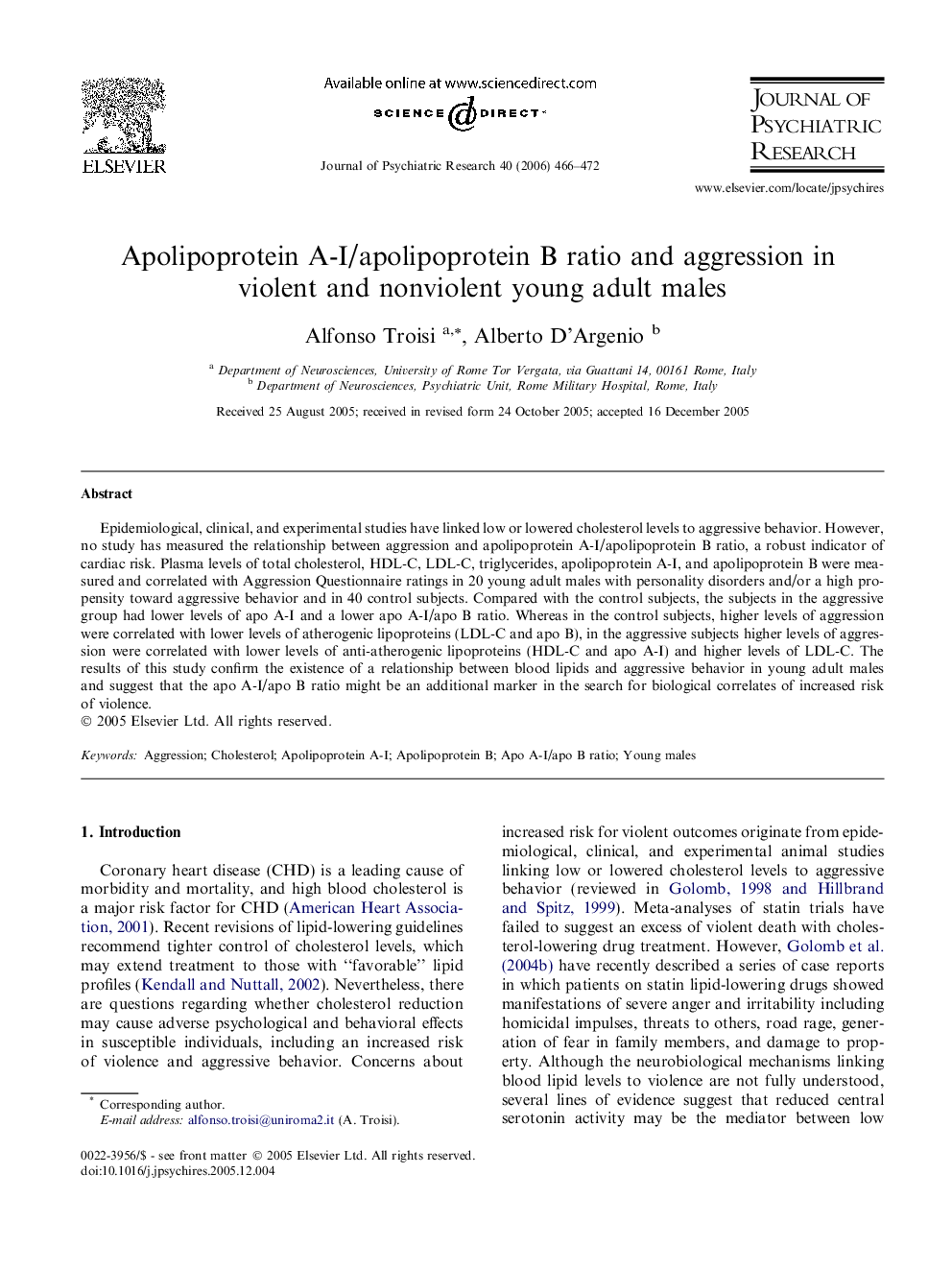| Article ID | Journal | Published Year | Pages | File Type |
|---|---|---|---|---|
| 327964 | Journal of Psychiatric Research | 2006 | 7 Pages |
Epidemiological, clinical, and experimental studies have linked low or lowered cholesterol levels to aggressive behavior. However, no study has measured the relationship between aggression and apolipoprotein A-I/apolipoprotein B ratio, a robust indicator of cardiac risk. Plasma levels of total cholesterol, HDL-C, LDL-C, triglycerides, apolipoprotein A-I, and apolipoprotein B were measured and correlated with Aggression Questionnaire ratings in 20 young adult males with personality disorders and/or a high propensity toward aggressive behavior and in 40 control subjects. Compared with the control subjects, the subjects in the aggressive group had lower levels of apo A-I and a lower apo A-I/apo B ratio. Whereas in the control subjects, higher levels of aggression were correlated with lower levels of atherogenic lipoproteins (LDL-C and apo B), in the aggressive subjects higher levels of aggression were correlated with lower levels of anti-atherogenic lipoproteins (HDL-C and apo A-I) and higher levels of LDL-C. The results of this study confirm the existence of a relationship between blood lipids and aggressive behavior in young adult males and suggest that the apo A-I/apo B ratio might be an additional marker in the search for biological correlates of increased risk of violence.
